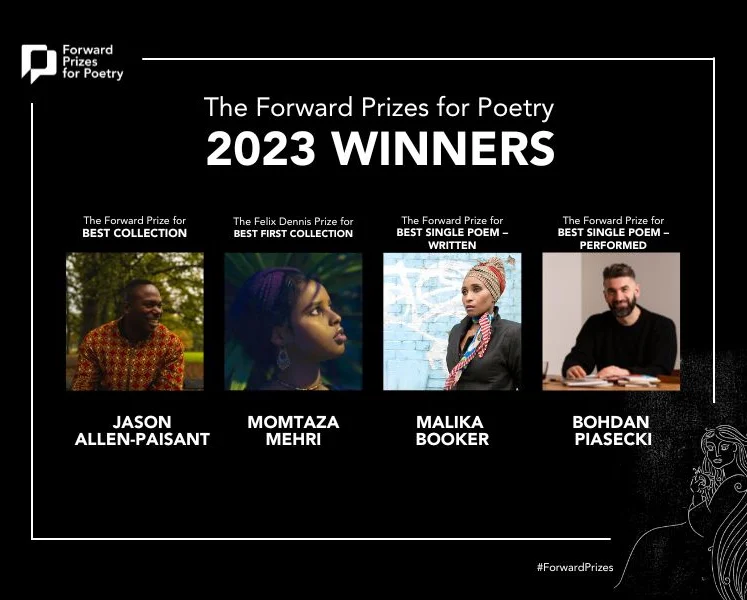As of June 2023, the Forward Poetry Prizes will award the first literary prize for spoken word poets,
with a best spoken poem category being awarded alongside the best written poem category. But, why has it taken this long for spoken word poetry to gain this recognition and why now?
Currently, the standard for poetry at GCSE level is an anthology of poems spanning about two-hundred years. Being most students first real introduction to poetry, this can often make or break an interest in poetry for the rest of their lives. But, increasingly the focus of teaching doesn’t go far beyond the exam curriculum. Barbara Bleiman writes of Magma’s eighty-fifth issue, Poems for Schools, that oftentimes this leads to teaching ideas about individual poems, rather than poetry in
general and as a practice, as well as a reliance on formulaic analysis.
Therefore, it isn’t surprising that very few poetic forms are covered, and spoken word poetry is often taught wholly on accident. John Agard’s Checking Out Me History is a memorable entry in the AQA anthology, Power and Conflict. Written in a distinct Guyanese dialect and musical rhythm, most teachers play Agard’s reading of it rather than read it themselves. Agard’s reading is musical, moving, and above all, skilled. It is extremely different to the dispassionate reading from teachers or classmates that most students are used to, but most teachers will ignore this in favour of its technical
elements.
In 2021, the same year I began studying poetry in earnest, Joelle Taylor’s C+NTO won the T.S Elliot
prize, and her performance of her deeply personal poetry about her life as a queer woman both resonates with me and mesmerises me. Examining her slam poetry achievements, and from my own inspiration from her, I began to build an idea of what the draw of spoken word poetry is.
Taylor wasn’t, and still isn’t, the only spoken word poet writing to and from marginalised perspectives. As mentioned, Agard continually examines race within his poetry, and his use of spoken word, notably in his native Guyanese dialect gives a vivid platform to discuss these topics: spoken word gives a literal space for marginalised voices to be heard.
Looking at the shortlist of the best spoken poem category proves that this continues to be the case.
Nidhi Zak’s Our Eyes Are on Europe, written in response to Joyce’s Ulysses, explores Ireland’s nationhood, read aloud in an Irish accent as Zak writes her experience of a woman of colour in Ireland as a marriage between the two facets of her identity.
Similarly, Zena Edwards’ Human: This Embodied Knowledge is written about William Kwambumba building a windmill and saving his village from starvation, and about reconnecting with what it truly means to be human. In the poem, Edwards goes on to relate this back to her race in the poem, and explains in her interview with the Forward Arts Foundation, ‘I was exhausted by seeing the black
body brutalised, demonised, our intellect and positive contributions to the world diminished, minimised and taken for granted. I was starved and exhausted from the narrative that we are an annoying left-over legacy post the chattel enslavement phase of colonialism.’
Roger Robinson’s poem deals with similar themes, though more subtly, in The City Kids See the City: written for the book Home is Not a Place, which is based on conversation with black communities across the U.K. The poem itself also touches on the relationship between humans and nature as the titular city kids rejoice in seeing the ocean.
Michael Penderson’s work also directs this matter towards dialect, too: he mentions in his interview with Forward Poetry that his first works were in Scots. As the Internet slowly begins to homogenise language, and more and more languages become endangered, to take the stage and recite a poem in a dialect, becomes an intrinsically political act.
Bohdan Piasecki’s reading is impactful for similar reasons, as well as being unique in its musical
accompaniment. But alongside this, being read with a clear accent by an immigrant gives weight to its
subject matter, an explosion. Being especially pertinent to the current war in Ukraine, hearing these words from the affected, rather than the news sources most of us are used to, is more important than ever.
Looking at this demographic, it tracks that artists such as these have been snubbed from awards, especially as our education system continues to worship Blake and Wordsworth. As the landscape of poetry diversifies and reaches more and more audiences, it is not surprising that spoken word poetry is also gaining more recognition as a platform that quite literally amplifies marginalised voices. There is a reason that the TV broadcast of Tony Harrison’s V caused so much political uproar, despite having already been in print for two years. This is it: while would agree that literature is a powerful, political tool, to hear the words that tell a story from an oppressed perspective directly from the mouth of the
oppressed is far more potent.
Watching these poets perform their poetry still carries the same power that John Agard had five years ago when I thought I despised poetry. And what’s more, because of these spoken word artists, I am not ashamed to say that I have not loved poetry my entire life, as many accomplished poets have. I did not know what poetry could be. And by celebrating today’s performed poetry, we are inviting even more potential poets to share their work.





















